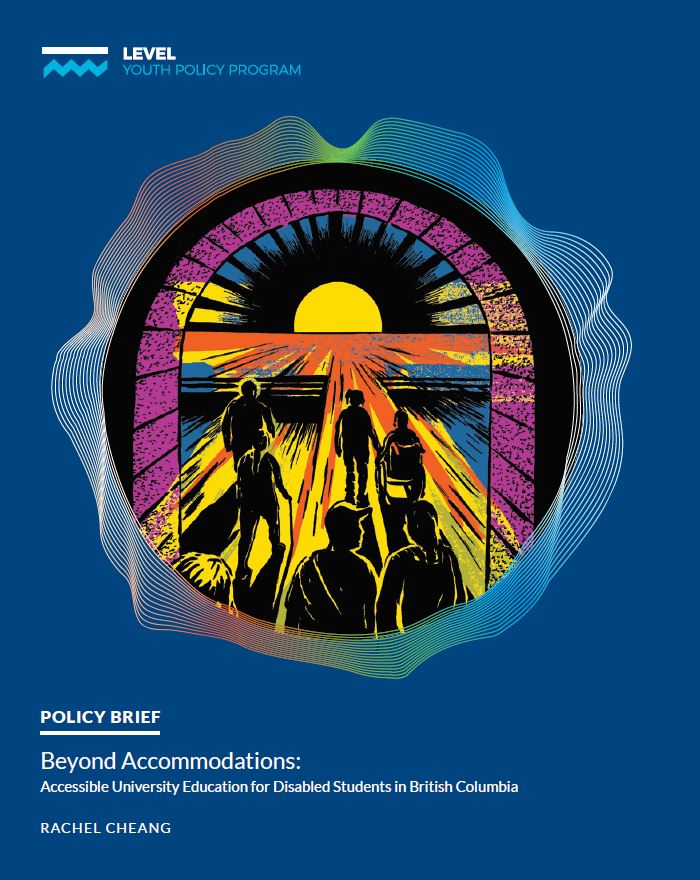British Columbia (BC) is the largest province in Canada without any form of accessibility legislation to help identify, remove, and prevent barriers experienced by disabled people.
Despite significant developments in human rights legislation for disabled people in recent years, there is currently no legislation on a provincial or municipal level to protect them from discrimination. As the BC government is in the process of developing provincial accessibility legislation, it is timely that this policy brief recommends that any protections for disabled students in all universities in BC under the BC Ministry of Advanced Education, Skills, and Training should and must be included in the design of the legislation.
A university education is often regarded as the crucial link between secondary education and success as an adult. Our increasingly competitive and precarious labour market also highlights the pressing need for access to a university education as a predictor of gainful employment and career development in meaningful occupations. This is especially true for disabled people whose range of employment is often limited to jobs that require fewer physical demands and more accommodations. Post-secondary education is therefore seen as essential to the social and economic standing and development of disabled students. However, the exclusion and lack of support for students with disabilities remains a significant issue in universities, and this is often compounded for Black, Indigenous, and People of Colour (BIPOC), who also experience other forms of marginalization and exclusion.
Accessibility policies and legislation are fundamental to bringing about a cultural shift toward greater inclusion in higher education, and this requires going beyond academic accommodations. This policy brief aims to lobby the BC Ministry of Social Development and Poverty Reduction, the BC Ministry of Advanced Education, Skills, and Training, as well as university administrations (senates and governing boards) in BC, for the incorporation of six main recommendations in the BC provincial accessibility legislation:
- Mandate the collection and intersectional analysis of disability-based data;
- Mandate disability and accessibility competency training and accessible teaching and learning approaches for all deans, department chairs, faculty, and staff members;
- Revise accommodation policies to eliminate the need for medical documentation and include transparent conflict-resolution processes;
- Reallocate funding to expand disability and mental-health services on campus;
- Establish a Disability Advisory Committee to support Equity, Diversity, and Inclusion (EDI) strategic or action plans;
- Mandate accessible building codes.
Universities have a long way to go in reducing the gap in social inclusion of disabled students, and to adjust academic standards to meet their needs. It is clear that without these recommendations compelled by law, university administrations will be unlikely to implement them. This policy brief also comes at a critical time as universities formulate and advance COVID-19 recovery plans and deepen calls for stronger EDI mandates and policies in recovery efforts to ensure that no students are left behind.
In order for universities to be truly inclusive, we must centre the voices and lived experiences of disabled students, especially disabled Queer and Trans, Black, Indigenous, and People of Colour (QTBIPOC) students, in all levels of university governance, and develop strategies to advocate for meaningful change based on sound research and best practices. The responsibility for change rests with universities to lead the way forward, and university leadership must be committed to pushing back against a prevalent ableist institutional culture and internal bureaucratic structures. Stronger accessibility policies that seek to remove ableist barriers and create inclusive learning cultures in higher education can have a significant impact on the quality of education and life for many in BC.


